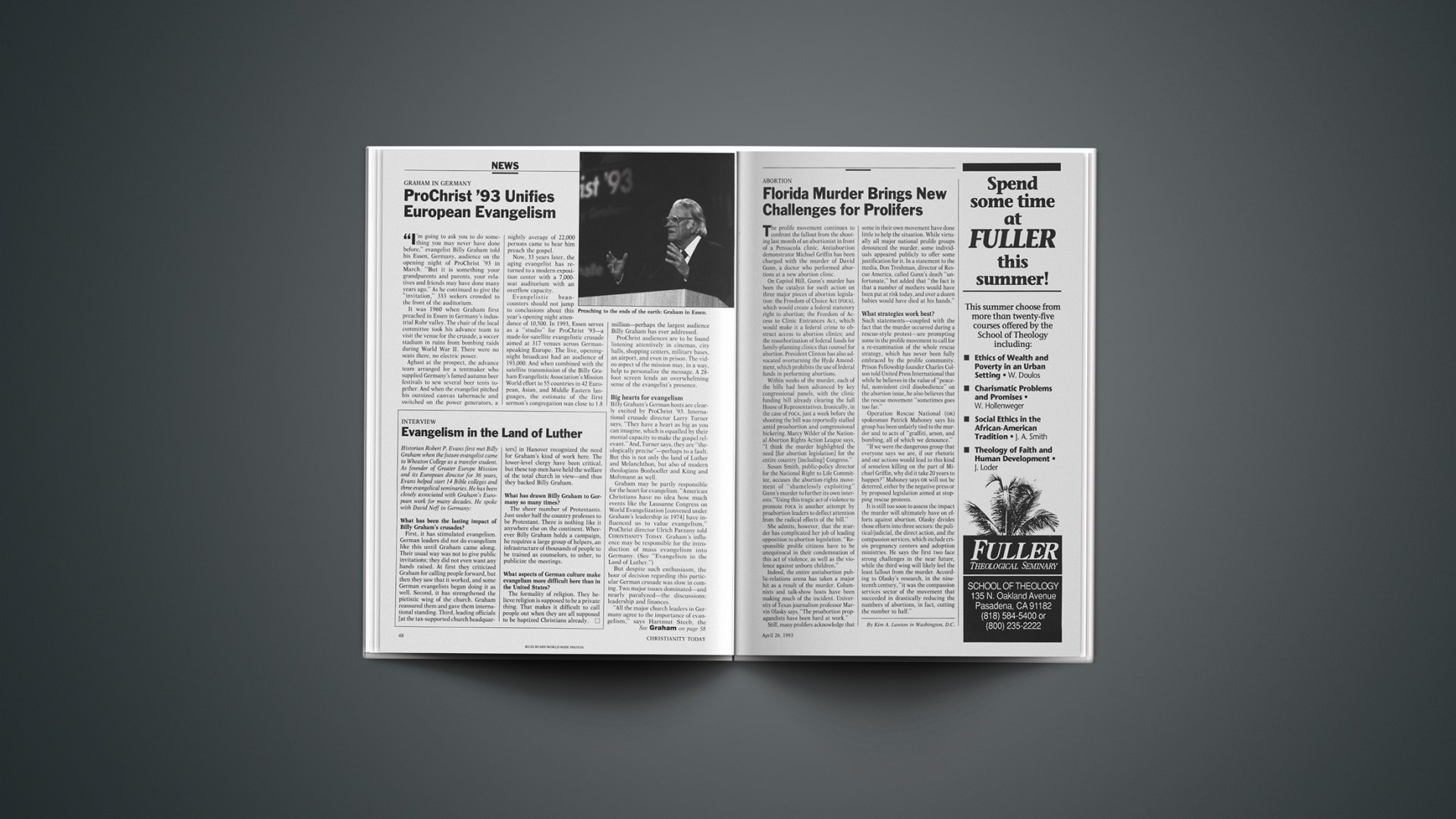Historian Robert P. Evans first met Billy Graham when the future evangelist came to Wheaton College as a transfer student. As founder of Greater Europe Mission and its European director for 36 years, Evans helped start 14 Bible colleges and three evangelical seminaries. He has been closely associated with Graham’s European work for many decades. He spoke with David Neff in Germany:
What has been the lasting impact of Billy Graham’s crusades?
First, it has stimulated evangelism. German leaders did not do evangelism like this until Graham came along. Their usual way was not to give public invitations; they did not even want any hands raised. At first they criticized Graham for calling people forward, but then they saw that it worked, and some German evangelists began doing it as well. Second, it has strengthened the pietistic wing of the church. Graham reassured them and gave them international standing. Third, leading officials [at the tax-supported church headquarters] in Hanover recognized the need for Graham’s kind of work here. The lower-level clergy have been critical, but these top men have held the welfare of the total church in view—and thus they backed Billy Graham.
What has drawn Billy Graham to Germany so many times?
The sheer number of Protestants. Just under half the country professes to be Protestant. There is nothing like it anywhere else on the continent. Wherever Billy Graham holds a campaign, he requires a large group of helpers, an infrastructure of thousands of people to be trained as counselors, to usher, to publicize the meetings.
What aspects of German culture make evangelism more difficult here than in the United States?
The formality of religion. They believe religion is supposed to be a private thing. That makes it difficult to call people out when they are all supposed to be baptized Christians already.










